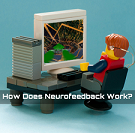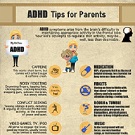 Photo Credit: Pink Sherbert Photography Photo Credit: Pink Sherbert Photography via Flickr Creative Commons 2.0 There is a lot of research that indicates meditation can be very helpful for self-regulation, calming the brain and mind, increasing the ability focus, among a myriad of other benefits. But how many parents out there can imagine teaching a (neurotypical) child to meditate? How about a child with ADHD, Autism, or Asperger's? CONTINUE READING How Deep State Training is Used to Provide these Benefits After a client completes at least 10 regular neurofeedback sessions, we're able to use Deep State or Alpha Theta Training to help the person with learned habits, beliefs, fears, phobias, and emotional trauma. Deep State Training is like meditation with handrails. Two particular brain waves are involved in this type of neurofeedback. Alpha waves, 8-12 Hz, are associated with awake relaxation, and are found during meditation. Theta waves, 4-8 Hz, are associated with REM sleep or light sleep. During Deep State Training, neurofeedback guides the client to a very relaxed state, just on the bridge of sleep. Neurofeedback works to keep the client just on the edge of sleep, not quite awake and not quite asleep. This state is achieved when the Theta waves increase and Alpha waves decrease slightly, creating an Alpha Theta "cross over". During a "cross over", the brain is able to reprocess learned behaviors and upsetting memories. This is when we typically see many of the obsessive behaviors and rituals decrease.
What you can try at home
2. Play Games that Encourage Stillness and Focus When I worked in Therapeutic Foster Care, many of children on my caseload were developmentally delayed with severe hyperactivity and over arousal. We frequently played "The Sit Super Still" game. Sometimes we played as part of a family session, where one child was the "judge" and the rest of the family got as comfortable on sofas or the floor as possible and tried to remain as still as possible. The objective was to remain the last person who had not moved. I used this game as an opportunity to teach Diaphragmatic Breathing. I had one child who could not remain still for more than 10-15 seconds, without wiggling or fidgeting or even getting up. This was becoming a major problem at school. After 6 weeks of playing this game 3 or 4 times per week, she was able to sit almost completely still for 2 minutes! Check out this post on Concentration Building Techniques for Kids from empoweringparents.com 3. Work Towards Meditation in Stages As you play games that require focus and stillness, work on opportunities to observe and promote awareness. Take your child outside and ask them to tell you what they see. You can offer direction such as, "Look at the moon. Isn't it pretty? What do you see?" Feel free to adapt these suggestions in any way that is helpful to you and your child. Let us know if the comments what has worked for you.
|
Nikki Schwartz,
|




 RSS Feed
RSS Feed
